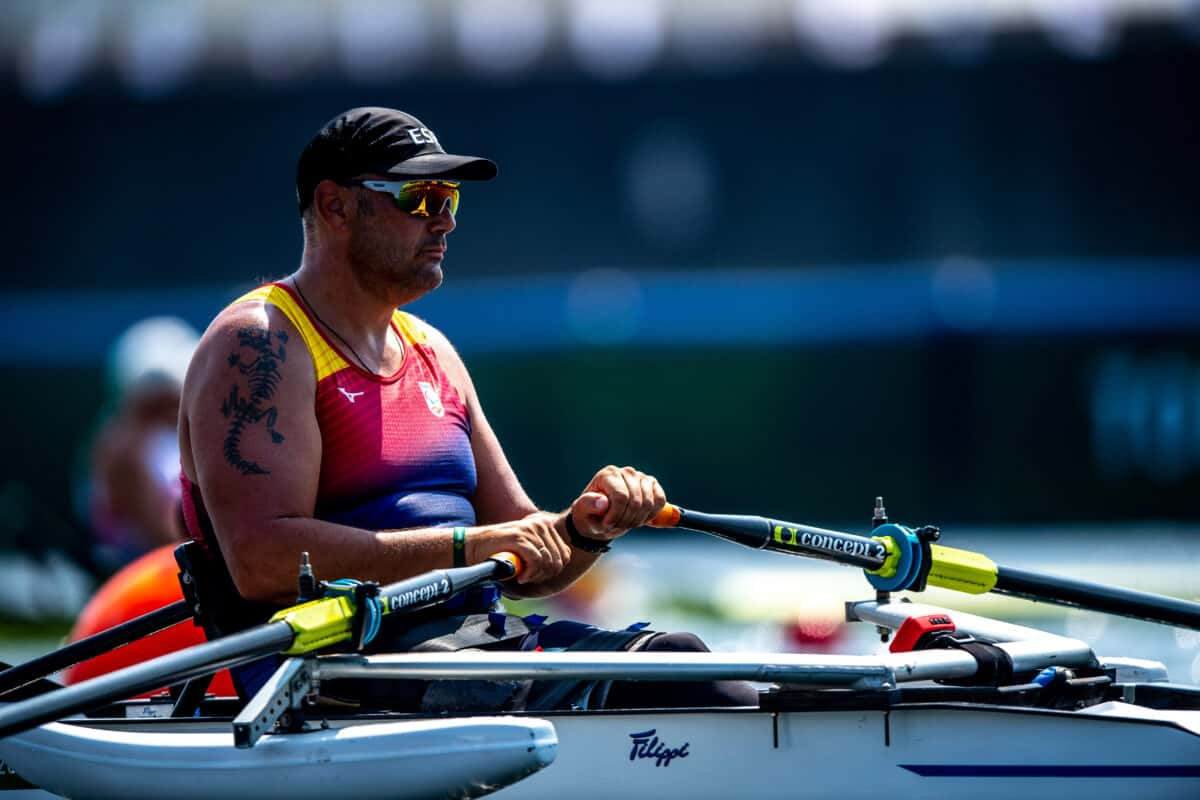
09 Jun 2023
Why choose Para Rowing?
“It was the comfort when practicing it.” – Javier Reja Munoz
When picking Para Rowing as a sport all of the reasons to pursue rowing count, but then there’s a few more considerations.
Of course there’s the opportunity to be on the water, to be active, to do a low impact sport, to be part of a team and club environment and the chance to compete. Added to this for para rowers is the need to check that the club facility suits the needs of a para athlete. Whether the club has the necessary boats, the accessibility and the support for para rowers.
For many of our top para rowers, choosing rowing grew out of an opportunity presenting itself. For some it has meant being part of more than one sport. The list of para rowers who have competed at the Paralympic Games in more than one sport is comprehensive and includes Birgit Skarstein of Norway (skiing), Blake Haxton of the United States (canoeing), Oxsana Masters of United States (cycling, biathlon, skiing), and many more.
Javier Reja Munoz of Spain has tried a number of sports in his short time as a para athlete.
Reja began his para athlete adventure as a canoeist. At his club (Club Náutico Sevilla) there was a para rowing boat that had been donated to the Spanish Rowing Federation. Reja kept eyeing the boat up and then heard that the boat was about to be transferred to another club. Reja asked what it would take to keep it at Club Nautico.
The reply; “In two weeks it’s the Spanish championships and it’s here in Seville.”
Two weeks after stepping into the hull of a para rowing boat, Reja was racing in the Spanish National Championships. He won.
Reja went back to canoeing and preparation for the Rio 2016 Paralympic Games. In 2019, the Spanish Rowing Federation began a new para rowing project and Reja decided to join it. He qualified for the Tokyo 2020 Paralympics in para rowing. The switch in sport had been made.
A motorcycle accident resulting in his right leg being amputated brought Reja to para sport. He began with para cycling, para swimming and para triathlon before turning to para kayak and then para canoe.
Reja says comfort is his main criteria when choosing a sport. He once described canoeing “like a suit that fits me well”.
“I go by the comfort when practicing it,” says Reja. “Due to the injuries I have in my hip, I have many problems and pain when I practice.”
“I am more comfortable in some sports than in others. In rowing, the straps that I wear and the backrest that I have is made to measure, I feel very comfortable and I can do long training sessions, which I can’t do in a kayak.
“I feel very supported and I have stability even though I am missing my led and hip. I do not have a symmetrical stroke, but I manage it well thanks to the adaptations and anchors that I have.”
As well as the comfort, Reja has always been drawn to outdoor sports. Living in Seville Reja says he has one of the best bodies of water in the world to train on. But, Reja admits, he does not enjoy going backwards and being unable to see where he’s going.
At the Tokyo Paralympics Reja finished an incredible fourth overall, considering his short time as a para rower. He is now aiming to qualify for the Paris 2024 Paralympics.
When choosing your para sport Reja offers some sage advice.
“Look for a sport that you can practice daily. For example, here in Seville it would not occur to me to try skiing since the mountains are 250km away. But for rowing or canoeing I have the best course in the world.”
Reja goes on to say you then have to like the sport and be able to adapt well.
“In adapting you have to invest some time and mental sessions.” As part of this your boat needs to be set up for you to be as comfortable as possible.
“And make sure you can use your strength as well as possible.”
But perhaps the most important for Reja doing a para sport was survival.
“In my case, sport was a lifeline that I clung to after a traumatic situation in my life. Sport was my best therapy to get through the bad situation I was going through.”
How to become a Paralympian: https://www.nchpad.org/1518/6485/How~to~Become~a~Paralympian

